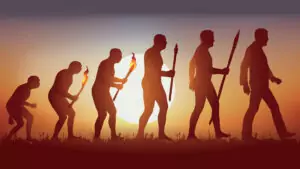It is commonplace that technologies are changing the world we live in. Roughly every two decades, Earth becomes almost a brand new place in terms of technological wonders becoming routine, and revolutionary ideas settling as solid scientific theories. However, we might not be aware of the extent to which the world is changing—not just because we constantly live within the eye of the hurricane, so to say, but also because technologies sometimes advance too fast for us to comprehend and evaluate their influence on the ways we live, think, feel, and behave. One of such technologies is virtual reality, or VR: a concept introduced by science-fiction writers and scientists quite a while ago, but is now becoming a trending technology worldwide. And, since it is obvious that VR will from now on be an inalienable part of the world, it is important to contemplate the ways in which it will affect humanity.

✅ AI Essay Writer ✅ AI Detector ✅ Plagchecker ✅ Paraphraser
✅ Summarizer ✅ Citation Generator
If we analyze the term “virtual reality,” we naturally need to understand what each of its two components mean on their own. So, according to the online Merriam-Webster dictionary, “virtual” means “very close to being something without actually being it” (Merriam-Webster.com). Specifically, this adjective is mostly applied to the environments created with the help of computers (as in video games, for example). “Reality,” in its turn, is broadly speaking about the whole three-dimensional world we live in and interact with. Considering these two definitions, it can be said that virtual reality is an artificially-created three-dimensional environment constructed with the help of computers, which people can interact with in the same way as they do with the real world, using their senses to navigate and explore it.
Computer generation can emulate situations and environments hardly possible in the real present world: visual effects we can see in movies such as “Transformers” or “Avatar” make a solid example of this statement; no need to say that emulating regular real-life situations is also possible for VR. Therefore, VR can be used to enable people perform actions without affecting the real world, which is especially useful for all kinds of training and practices. For instance, a future jet pilot can safely learn how to maintain and fly their aircraft without putting their life at risk and wasting expensive fuel. An astronaut can practice their outer space repairing skills with the help of a computer simulation, completely emulating the conditions that he/she will face in actual space. A medical student can learn how to perform surgeries or autopsies on fully interactive body models, which can appropriately respond to a student’s every action—needless to say it is much safer for learning than when a novice surgeon performs their first operation on a real patient. Therefore, one of the most obvious effects VR will have on the modern world is the enhancement of studying and training capabilities, especially for the people involved in dangerous jobs.
VR can be great for entertainment, socialization, and art. In 2015, probably the biggest social media giant, Facebook, bought Oculus VR technology, integrating the possibilities it offers into the platform. For example, with Oculus Rift, it will soon be possible to view your friends’ photos in a 360-degree mode, which basically means you will be able to be virtually present on the events you missed, seeing them from a first-person perspective, and giving you a more immersive experience (AndroidPit). Gaming and movie industries will benefit from VR technology greatly, attracting millions of new customers annually—creating engaging and thrilling entertainment products capable of fully capturing consumers attention will benefit these industries and boost their further development.
Also, virtual reality can be a great help and relief for people with limited capabilities, especially for those who are fully or partially paralyzed, and thus have to live their lives chained to only one or few locations. It can give such people an opportunity to explore the world around them in the same way people without disabilities can do: the ability to walk, run, and perform other actions we take for granted can be a life savior for the majority of paralyzed patients, and this is probably the best opportunity VR can offer humanity at the moment (Engadget). This is not to mention that VR allows things impossible in real life, such as teleportation or Superman-like flying, all of which would also be available for such people.
As it can be seen, virtual reality is a new technology that can affect the lives of many people worldwide in a number of ways. Being an artificial, three-dimensional depiction of the real world, it grants numerous opportunities for practicing a wide range of skills that would otherwise imply great risks; jet pilots or medical students, for example, would definitely appreciate the possibilities VR grants. VR can significantly change the way people interact online, making their digital experiences for immersive and realistic—for example, Facebook has integrated Oculus technology, allowing 360-degree viewing of images, and this is just the beginning. The last but not the least is the fact that VR will allow disabled people to experience what they are deprived of: walking, running, exploring the world and travelling, and so on, so its value in these terms is difficult to underestimate.
Works Cited
- “Virtual.” Merriam-Webster. Merriam-Webster, n.d. Web. 20 Sept. 2016.
- Evans, Clare. “How Will Virtual Reality Change Our Lives?” Engadget. N.p., n.d. Web. 20 Sept. 2016.
- Schmidt, Cory. “Here’s How VR Could Change Our Social Lives.” AndroidPIT. N.p., n.d. Web. 20 Sept. 2016.
Follow us on Reddit for more insights and updates.





Comments (0)
Welcome to A*Help comments!
We’re all about debate and discussion at A*Help.
We value the diverse opinions of users, so you may find points of view that you don’t agree with. And that’s cool. However, there are certain things we’re not OK with: attempts to manipulate our data in any way, for example, or the posting of discriminative, offensive, hateful, or disparaging material.